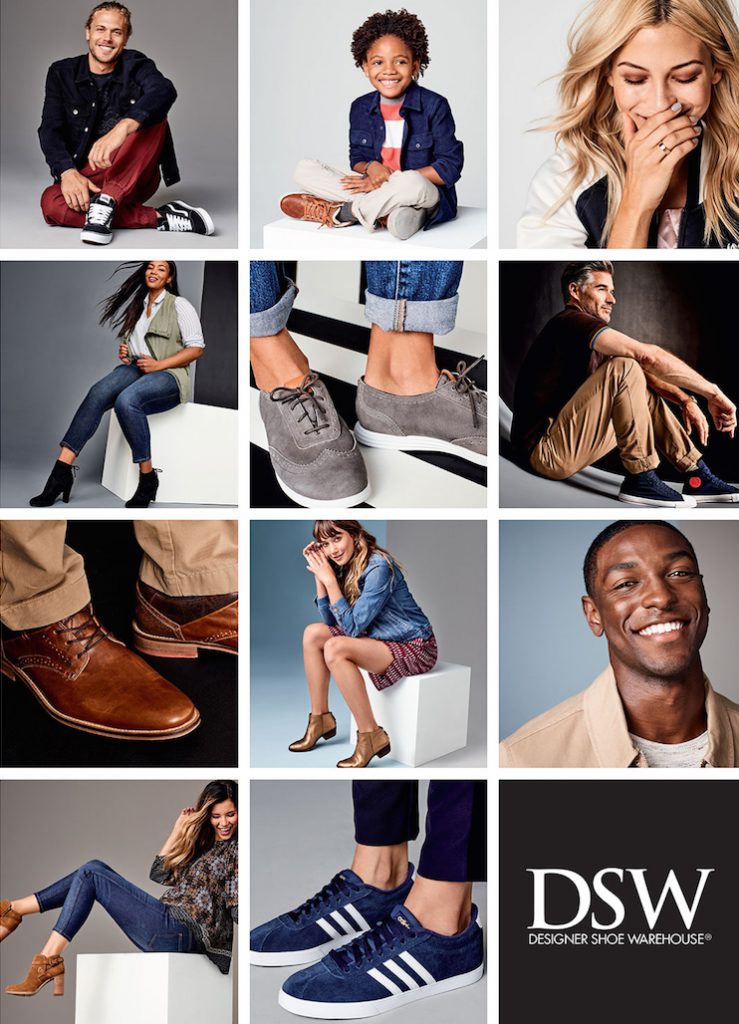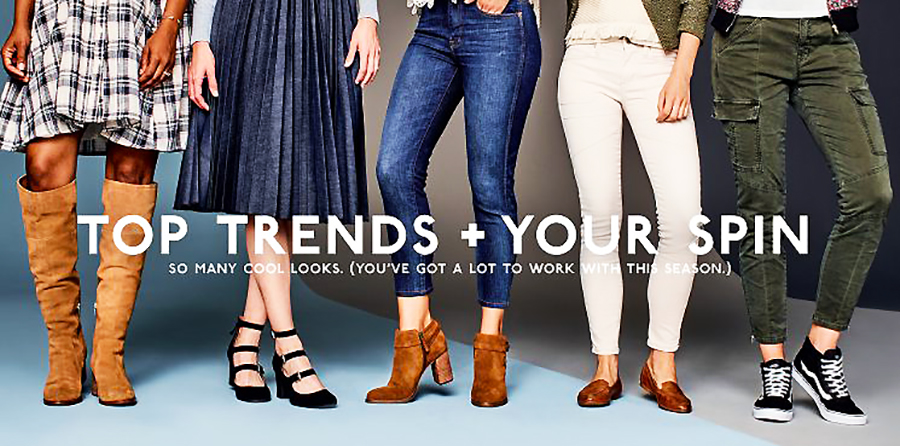By Thomas J. Ryan
<span style="color: #999999;">Designer Brands Inc. (formerly DSW Inc.) said its second-quarter results were distorted by last year’s mega-acquisition of Camuto Group and DSW’s 2018 relaunch of the company’s VIP rewards program last year. But officials asserted that DSW’s underlying momentum remains healthy.
DSW’s comps dipped 0.6 percent for the second quarter ended August 3 as it faced brutal comparisons against a 9.7 percent hike in the year-ago second quarter, boosted by the rewards program relaunch.
“While the comp sales decline is not healthy long term, I’m happy we came in as projected,” said Roger Rawlins, CEO, on a conference call with analysts.
He noted that DSW’s comps represented an acceleration in the company’s two-year comp sales stack to 9 percent in Q2 from 5 percent in Q1.
“Our ability to digest this event and still deliver two-year comps well above the industry average, demonstrates the power of our model,” said Rawlins. “A relentless focus on our ‘best at’ and ‘win at’ merchandise categories in both the U.S. and Canada delivered these results.”
At the U.S. Retail Segment, comp sales declined 1.5 percent versus last year’s comp growth of 9.6 percent, delivering a two-year comp of 8.1 percent.
Jared Poff, EVP and CFO, said the off-price chain in the U.S. “continued to see traction in our distortion to seasonal and key items with boots comping in the double-digits and sandals comping in the low-single-digits.”
Kids led the way, up 32 percent. Athletic comps were up in the low-single digits. Declines were seen in women’s, off low-single digits; men’s, low-double digits; and accessories, mid-single digits.
 Digital demand at DSW grew 22 percent.
Digital demand at DSW grew 22 percent.
DSW’s Canadian Retail segment continued its momentum, generating 8.1 percent comp sales growth on top of a 7.1 percent growth last year. The gains were fueled by a much-improved AURs as the inventory disciplines installed upon the acquisition of the Canadian business, formerly known as Town Shoes, drove significantly improved regular price sales on fresh inventory.
Total companywide revenue increased by 8.2 percent, to $860.2 million, including $102.9 million in revenue from the Brand Portfolio segment which includes $17.7 million in intersegment revenue that is eliminated in consolidation.
On an adjusted basis to exclude charges largely tied to the Camuto acquisition, earnings fell 29.8 percent to $35.8 million, or 48 cents a share, from $50.9 million, or 63 cents. Results were in line with Wall Street’s target.
On a reported basis, earnings reached $27.4 million, or 37 cents, against a loss of $38.4 million, or 48 cents, a year ago. The latest year included pre-tax charges totaling $9.1 million, or 11 cents per share, primarily from integration and restructuring expenses.
Gross margin decreased 210 basis points primarily driven by a benefit recognized in the year-ago quarter as a result of adjusting DSW’s loyalty programs deferred revenue due to the relaunch of the DSW VIP rewards program. The lower margins also reflect the inclusion of Camuto Group which operates at a lower gross profit rate and higher shipping costs due to online growth.
Reported operating expenses, as a percent of revenue, increased 180 basis points driven by the consolidation of the Brand Portfolio segment and integration and restructuring costs this year.
<span style="color: #999999;">Designer Brands reaffirmed its guidance for the year, including EPS guidance in the range of $1.87 to $1.97.
Poff said that the company did not raise its guidance due in part to the uncertain tariff situation. He added, “We did not want to be aggressive in our guidance, then ignore what is very large uncertainty. However, we feel we have many avenues to help Designer Brands mitigate the impacts of tariffs.”
On the product it makes itself, Designer Brands is “negotiating hard” with factory partners. The company estimated the weakening yuan versus the U.S. dollar has led to a 4- to 6-percent benefit to factory partners that are expected to translate into tariff mitigation.
Additionally, as Camuto’s business gets back into growth mode, the number of units the company produces is expected to increase 70- to 100-percent over the next few years and “significant” scale in production is expected.
At its retail segments, Designer Brands is using DSW’s scale to push back on the vendor community against any proposed price increases. Poff said, “We are one of the largest accounts to nearly all of our vendors, and we are certainly one of, if not the largest account, generating growth for our vendors. As such, we intend to hold firm on pricing and find ways to utilize our own brands to help mitigate the tariff impact; therefore, we believe we have the ability to mitigate much of the impact of the currently imposed tariffs especially for the remainder of 2019.”
Longer-term, Poff said the company’s growing scale with factories, current and growing scale in retail segments and its ability to flex assortment between vendors and exploit its own brands, “gives us tremendously more flexibility in maneuvering around the tariff landscape than many of our peers.”
Photos courtesy DSW
















